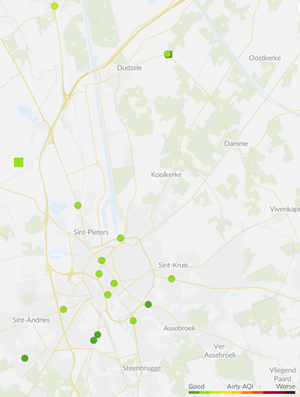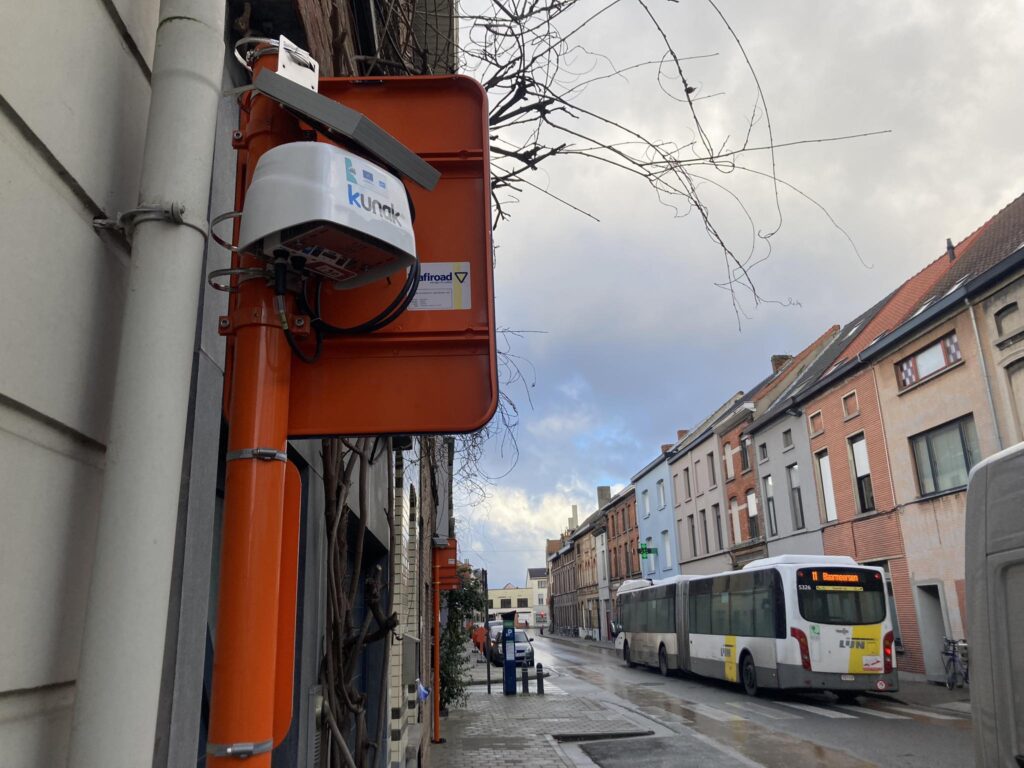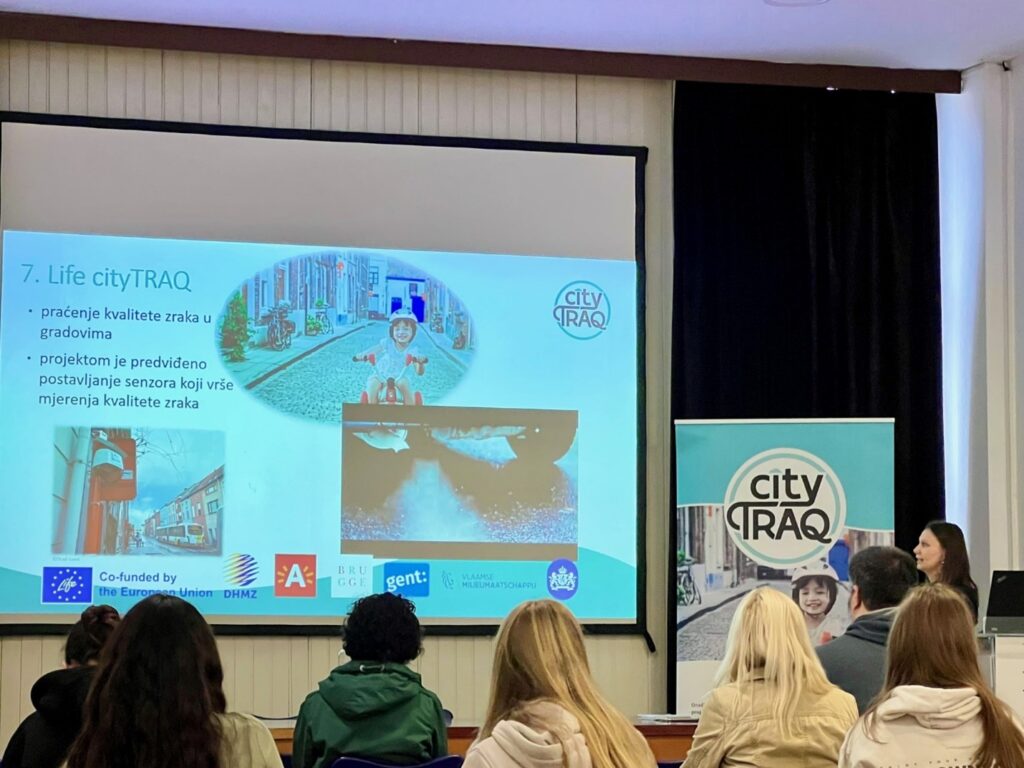Cities in action: part of pilot projects well underway
Within the European project CityTRAQ, the partner cities of Antwerp, Bruges, Ghent and Zagreb are committed to monitoring and improving air quality. Innovative sensors and continuous performance evaluation result in quality measurements, allowing the cities not only to et a more accurate picture of local air quality, but also to take targeted actions to address air pollution.
Pilot project in Antwerp
Antwerp will investigate the set-up of traffic measurements to obtain improved air quality maps for urban policy development. The goal is a better understanding of the contribution of heavy traffic on local air pollution and the impact of logistics policy measures on improving air quality. More information about the pilot project will follow later.
Pilot project in Bruges
Last summer, a sensor netwerk was implemented throughout the city. 18 sensor boxes measure particulate matter (PM2,5), nitrogien dioxide (NO2) and ozone (O3). The network will monitor the air quality for the coming two years. These measurements will be used to get a deeper insight in the current air quality in the city. The city of Bruges will also evaluate the impact of the air quality action plan and the prediction accuracy of the air quality models.
To inform the citizens on the current air quality, a mobile LED screen will be installed on several locations throughout the city. The air quality parameters of one or more sensors will be visualized. The implementation is planned for the beginning of 2025.
Furthermore, the city of Bruges will organize two workshops for citizens to build their own air quality sensor. This sensor measures PM2,5 and PM10 and fits in the plan to enhance the sensor network in Bruges, in combination with citizen science in order to inform more citizens about the importance of good air quality.
Within the pilot project, an air quality action plan will be implemented. The tender for this plan is being finalized and the city of Bruges will take the first steps of the action plan at the beginning of 2025, using the tools developed by the VMM. This should lead to a list of measurements that have a positive impact on local air quality.


Pilot project in Ghent
In Ghent, a new district mobility plan was implemented in the district of Dampoort at the end of April 2024. Since early January 2024, 13 NO2 sensor boxes have been measuring the air quality in this district. These boxes will continue their measurements until the end of the year. These measurements will be used to evaluate the impact of the mobility plan on air quality.
Two of the sensor boxes have been installed in and near an existing school street. These real time air quality measurements will be used in a visualization in the school street. This visualization is currently being designed, based on co-creation sessions with school children.
Through these pilot projects, CityTRAQ is taking concrete steps towards healthier cities, with air quality improvements that are widely supported by policymakers and citizens alike.
Pilot project in Zagreb
The Croatian Meteorological and Hydrological Service (DHMZ) will conduct a pilot project to test the transferability of the CityTRAQ ideas and products from Flemish cities to other EU cities. The goal is to learn from the Flemish colleagues how to set up a sensor network and identify hotspots.
In Zagreb, NO2 exceedances are currently measured at one urban traffic quality site in the city center. It is suspected that there are more locations where NO2 levels are too high. A lack of traffic data makes it difficult to pinpoint those locations precisely.
The project in Zagreb aims to use high-quality sensors at multiple locations, including one near the official measurement site in the city center for comparison. The exact locations are still being determined in consultation with the city of Zagreb. Several locations are currently being considered, assessed based on overlapping georeferenced layers of traffic and population density, as well as locations where vulnerable groups live.
DHMZ is using the experience of the City of Ghent to conduct a procurement for leasing eight sensor boxes that measure NO2, NO, ozone and particulate matter, in addition to valuable meteorological data such as temperature, humidity and wind speed and direction. These sensor boxes, together with the automatic measuring instruments, will soon be colocated at the official air quality stations in the center of Zagreb and tested for quality before being installed in various locations around the city.
DHMZ is focusing on obtaining high-quality sensor data and improving traffic data, which will be outsourced to vehicle emissions experts. In the coming months, a methodology for Zagreb will be developed that includes a comprehensive traffic campaign, data collection and production of a traffic emissions inventory. This data will be used for diagnostic and planning tools.

